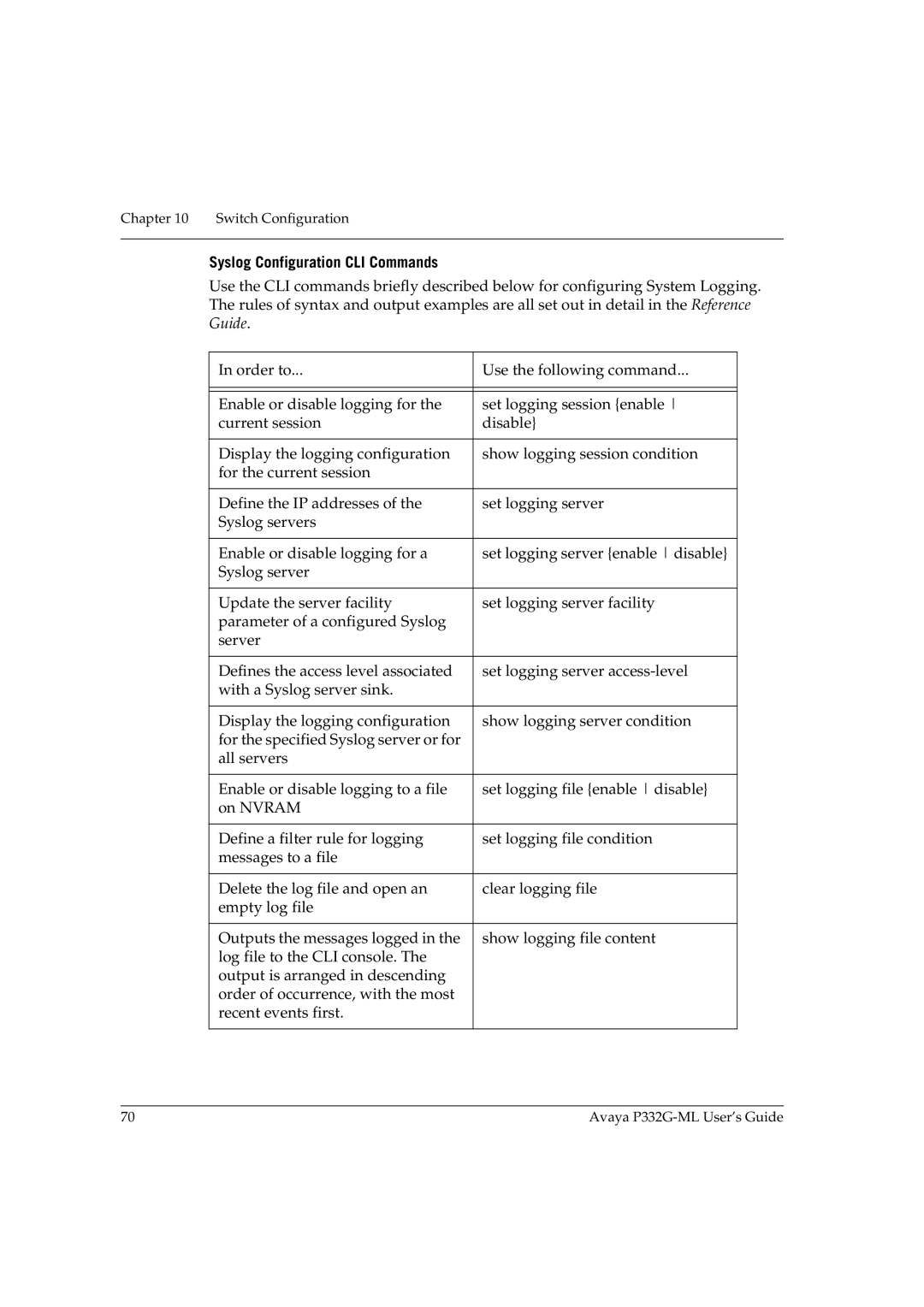
Chapter 10 Switch Configuration
Syslog Configuration CLI Commands
Use the CLI commands briefly described below for configuring System Logging. The rules of syntax and output examples are all set out in detail in the Reference Guide.
In order to... | Use the following command... |
|
|
|
|
Enable or disable logging for the | set logging session {enable |
current session | disable} |
|
|
Display the logging configuration | show logging session condition |
for the current session |
|
|
|
Define the IP addresses of the | set logging server |
Syslog servers |
|
|
|
Enable or disable logging for a | set logging server {enable disable} |
Syslog server |
|
|
|
Update the server facility | set logging server facility |
parameter of a configured Syslog |
|
server |
|
|
|
Defines the access level associated | set logging server |
with a Syslog server sink. |
|
|
|
Display the logging configuration | show logging server condition |
for the specified Syslog server or for |
|
all servers |
|
|
|
Enable or disable logging to a file | set logging file {enable disable} |
on NVRAM |
|
|
|
Define a filter rule for logging | set logging file condition |
messages to a file |
|
|
|
Delete the log file and open an | clear logging file |
empty log file |
|
|
|
Outputs the messages logged in the | show logging file content |
log file to the CLI console. The |
|
output is arranged in descending |
|
order of occurrence, with the most |
|
recent events first. |
|
|
|
70 | Avaya |
